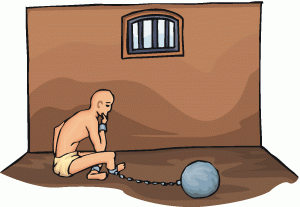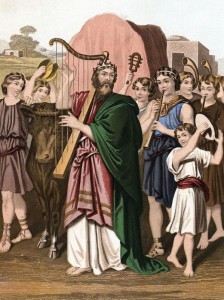The Scriptures Reveal Two Messiahs Are to Come:
One Who Will Be Like Joseph and One Who Will Be Like David
Let’s note a startling statement from Orthodox Jewish sources: Mesorah Publications The ArtScroll Bereishis, vol. 1(b) states in its commentary on Genesis 48:19 regarding Ephraim:
“R. Munk explains: ‘while it is true that the dispersion [of the descendants of Ephraim and Manasseh] was caused by the unfaithfulness and sinfulness of Ephraim’s descendants (Hos 7:8ff), Jacob’s blessing was not in vain for “they will return to God” and will have their share in the world to come (Sanhedrin 110b).’ And R. Eliezer adds: ‘Even the darkness in which the Ten Tribes were lost will one day become as radiant as the day’ (according to the version of Avos d’Rabbi Nosson 36). And in the perspective of history, did not these exiled children of the Patriarchs enlighten the nations among whom they were scattered? They did so by teaching their conquerors the fundamental ideas of the knowledge and love of God, ideals they had never forsaken. Hence they too have a messianic vocation and their Messiah, the Mashiach ben Yosef, Messiah son of Joseph (Succah 52a), also called Messiah son of Ephraim (Targum Yonasan on Exodus 40:11), will play an essential role in humanity’s redemption, for he will be the precursor of the Mashiach ben David, Messiah Son of David. It is therefore not surprising to find that the prophet Jeremiah (3:12) speaks affectionately of Ephraim. In this light, Jacob’s words, ‘his offspring’s fame will fill the nations nation,’ assume the significance of a blessing” (pp. 2121–2122). (emphasis added)
What the Jewish sages are saying here is that Messiah the Son of Yosef/Joseph—the Messiah whose coming precedes that of Messiah the Son of David—is the Messiah that causes the house of Ephraim (that is the ten northern tribes of Israel, many of whose descendants are currently found within the Christian church) to return to YHVH. Yeshua (Jesus), the son of Joseph, of whom the life and ministry of Joseph, the son of Jacob, was an antetype or prophetic shadow picture, is the very Messiah, unbeknownst to them, of whom they speak.
In Jewish literature, the Messiah whose life would resemble Joseph was referred to as the suffering servant or “Messiah Son of Joseph” (Mashiach Ben Joseph), while the Messiah whose life and ministry would resemble David was referred to as warrior king or “Messiah Son of David” (Mashiach Ben David). The Jewish sages came to this conclusion because when reading the messianic prophecies in the Tanakh (OT) they saw two different, even conflicting Messiahs whose roles were very different from each other. What was not known by the ancient Jewish sages, and was a subject of much debate, was which Messiah would come first, when he would come, would he be the same person or two different individuals, and how much time would separate the two comings.
For believers in Yeshua, this does not seem like a dilemma, for we look back in time and can see clearly that Yeshua fulfilled the Suffering Servant role at his first coming, and will fulfill the Conquering King role at this second coming. But two thousand years ago, without the benefit of historical perspective, this was not so easy a matter to figure out. Even the disciples were at times in a quandary as to which mission Yeshua was to fulfill as evidenced by their last question to him before his final ascension, “Will you at this time restore again the kingdom to Israel?” (Acts 2:6).
Let’s review some of the passages in the Tanakh that point to the two different Messiahs:
Messiah Son of Joseph
- The Suffering Servant will die a martyrs death for the sins of his people (Isa 52:13–53:12).
- In the end of times, the Jews will look upon him whom they pierced and mourn for him as one mourns for his only son (Zech 12:9–10).
- Verse one of Psalm 22 are some of the last words to come out of Yeshua’s mouth while he hung dying on the cross. This psalm predicts certain aspects of the Suffering Servant Messiah’s ministry.
- John 1:45 may be a double entendre allusion to Yeshua as being not only the (adopted) son of Joseph, the husband of Mary, but to his being Messiah Son of Joseph as well.
Messiah Son of David
- He will restore righteous government in Jerusalem (Isa 1:26)
- He shall judge the nations (Isa 2:4)
- All on earth shall worship him (Isa 2:17).
- He shall rule the earth and destroy the wicked (Isa 11:4).
- Under his rulership, all Israelites will be restored to their homeland (Isa 11:12).
- Matthew 9:27; 12:23; 15:22; 20:30, 31; 21:9,15; 22:42 are references to the expectations of the Jewish followers of Yeshua that he was Messiah Son of David.



